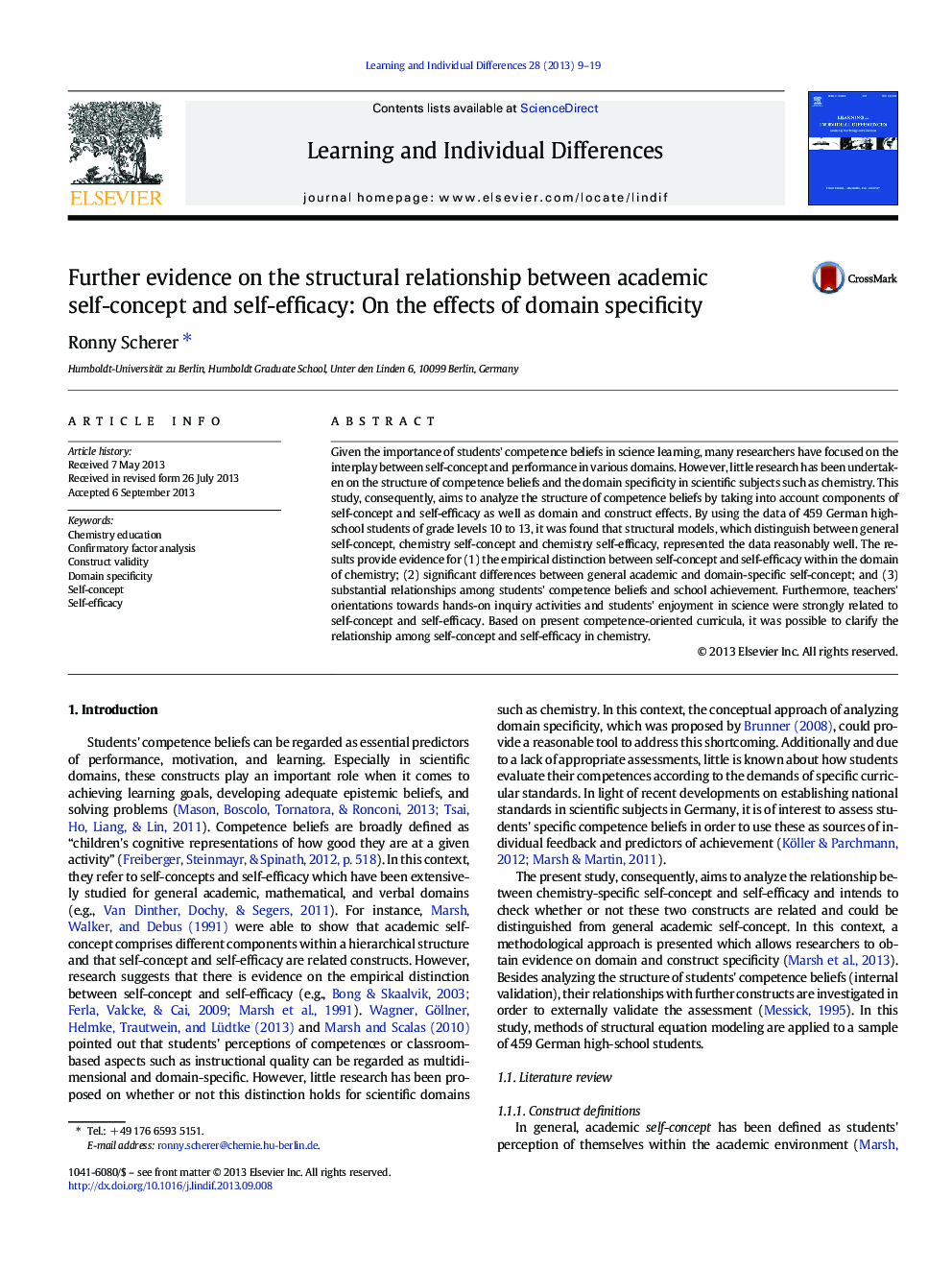| Article ID | Journal | Published Year | Pages | File Type |
|---|---|---|---|---|
| 364687 | Learning and Individual Differences | 2013 | 11 Pages |
•Chemistry self-concept and self-efficacy are empirically distinct constructs.•Students' general perceptions differ from task-specific evaluations in chemistry.•Assessments of self-efficacy can be linked to curricular demands.•Personality-, performance-, and classroom-based factors affect competence beliefs.
Given the importance of students' competence beliefs in science learning, many researchers have focused on the interplay between self-concept and performance in various domains. However, little research has been undertaken on the structure of competence beliefs and the domain specificity in scientific subjects such as chemistry. This study, consequently, aims to analyze the structure of competence beliefs by taking into account components of self-concept and self-efficacy as well as domain and construct effects. By using the data of 459 German high-school students of grade levels 10 to 13, it was found that structural models, which distinguish between general self-concept, chemistry self-concept and chemistry self-efficacy, represented the data reasonably well. The results provide evidence for (1) the empirical distinction between self-concept and self-efficacy within the domain of chemistry; (2) significant differences between general academic and domain-specific self-concept; and (3) substantial relationships among students' competence beliefs and school achievement. Furthermore, teachers' orientations towards hands-on inquiry activities and students' enjoyment in science were strongly related to self-concept and self-efficacy. Based on present competence-oriented curricula, it was possible to clarify the relationship among self-concept and self-efficacy in chemistry.
